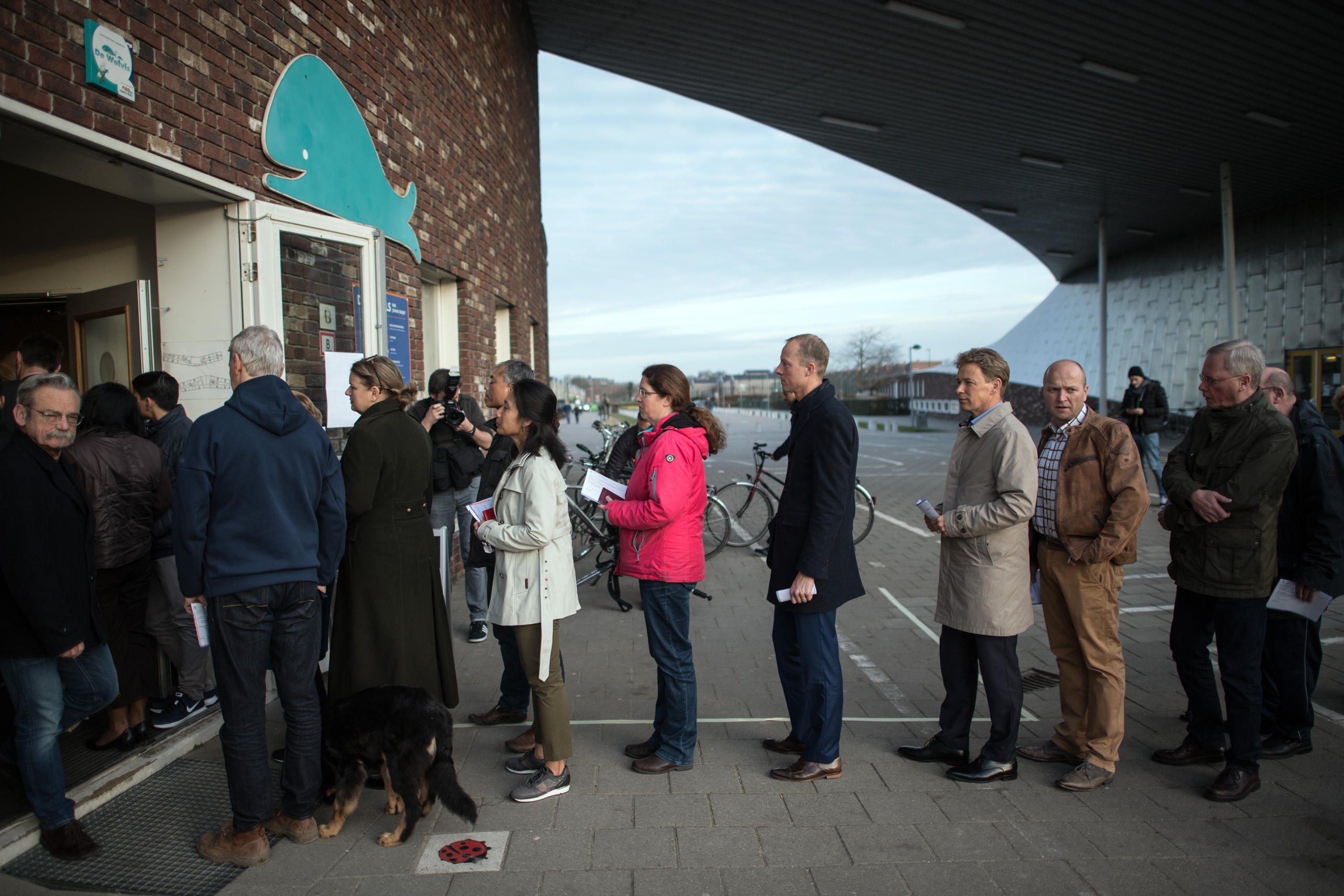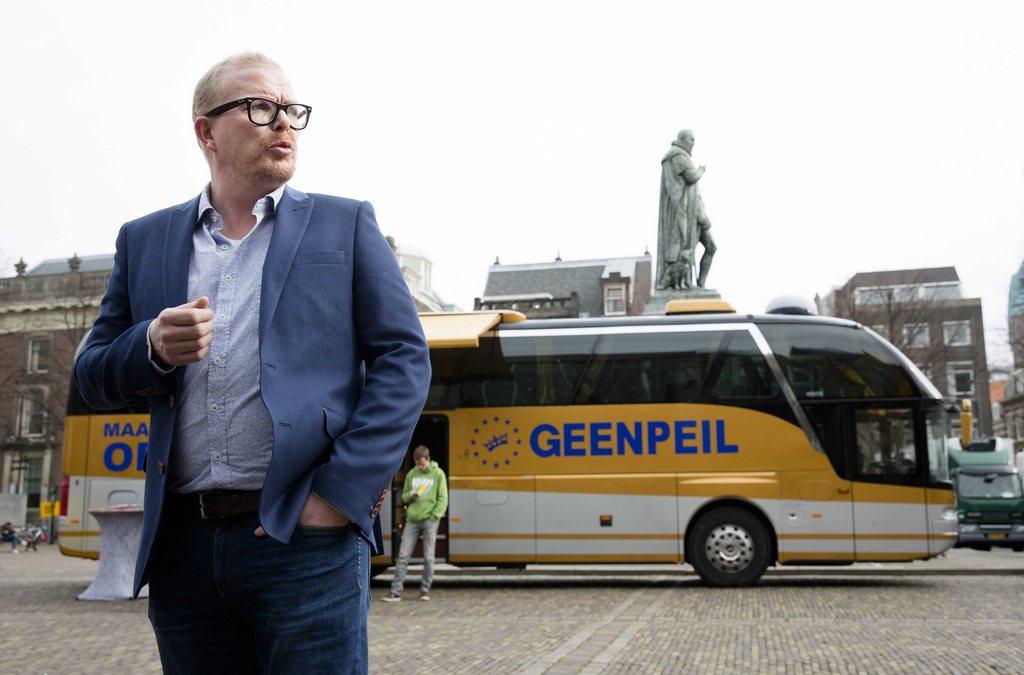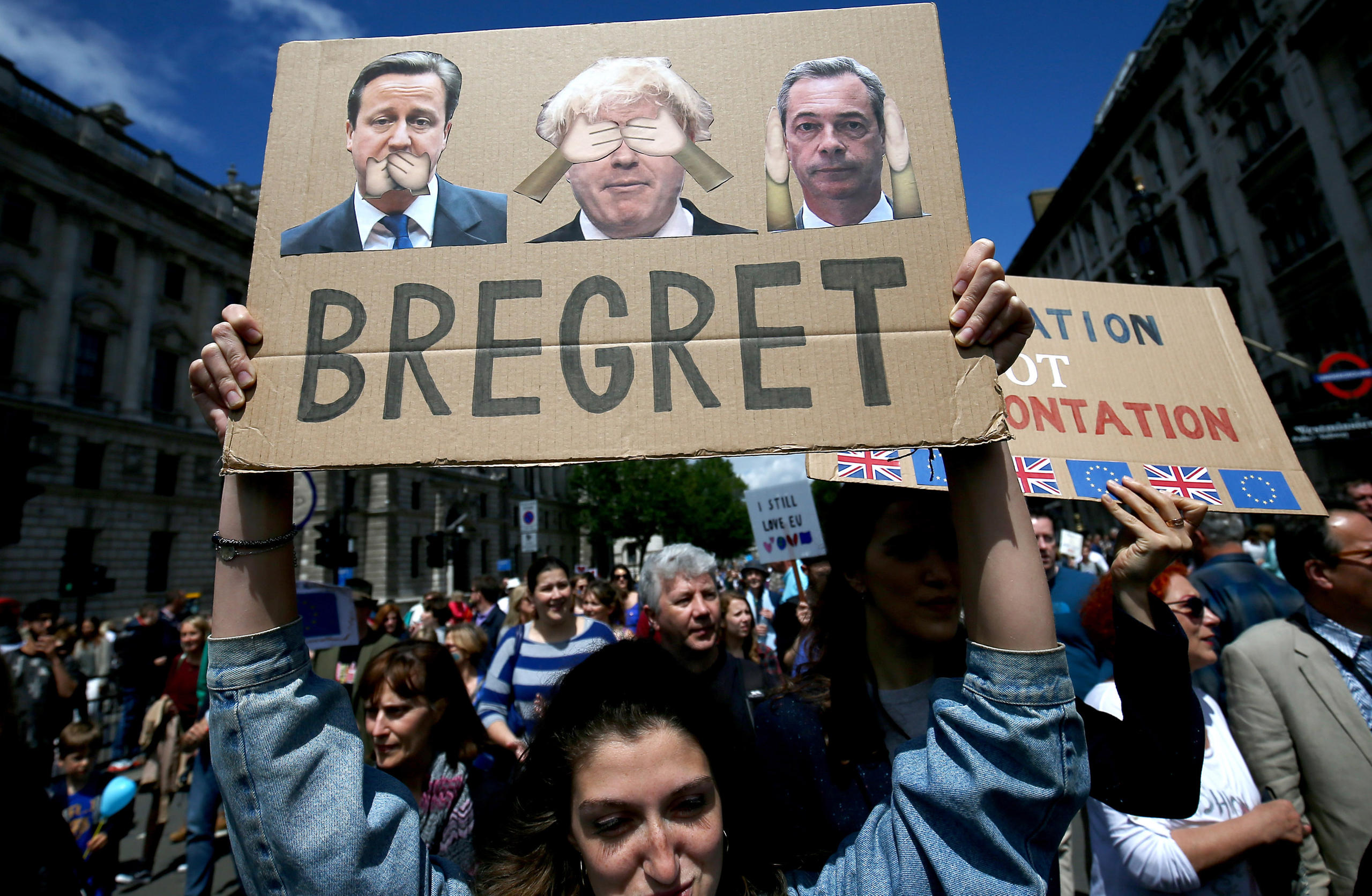Dutch direct democracy: From bad to worse?

Two years ago, the Netherlands introduced a tool for citizens to initiate a popular vote following more than a century of debate. Many citizens welcomed the new possibility to enhance public involvement in decision-making, but the new centre-right government wants to repeal the referendum option.
Last week, on Tuesday, after nearly seven months of coalition talks, four parties announced a deal paving the way for Prime Minister Mark Rutte to form a new government. The Netherlands has been without a new cabinet since the parliamentary elections of 15 March 2017, which resulted in a remarkably fragmented political landscape.
It took the four parties — the centre-right People’s Party for Freedom and Democracy (VVD), the conservative Christian Democratic Appeal (CDA), the liberal Democrats ’66 (D66) and the conservative Christian Union (CU) — over 200 days to strike a deal. The outcome is not good news for pro-referendum forces.
In the deal, the four parties announced their intention to withdraw the Dutch referendum law, a newly acquired democratic right that, since July 2015, has enabled Dutch citizens to initiate an advisory referendum on legislative proposals approved by parliament.
Strikingly, this plan was announced during the same week when a group of Dutch students successfully collected more than the required 300,000 signatures to trigger a referendumExternal link on the Information and Security Services Act.
Although not yet officially announced by the Dutch Electoral Council, this referendum will likely take place alongside next year’s municipal council elections in March.
Double incentive
The Dutch referendum law (in Dutch: Wet raadgevend referendum – Wrr) has some exceptional features that run the risk of creating a double incentive for non-participation.
First, referendums organised under the Wrr are advisory.

To my view, it makes little sense to advise parliament on an issue after parliament has debated and voted upon this issue. Moreover, there are no other countries (at least in the EU) where citizen-initiated referendums are advisory.
Second, a turnout quorum of 30% applies. Thus, citizens can trigger a referendum to advise the government to withdraw a legislative proposal, but the authorities only need to consider this when at least 30% of voters participate in the vote.
This induces strategic behaviour as people in favour of a law might abstain from voting in order to prevent a valid no-vote.
EU-Ukraine association treaty
These design flaws came to the fore during the first citizen-initiated referendum organised in the Netherlands, namely the vote on the European Union’s Ukraine Association Agreement, held in April 2016.
Prior to the vote, there were problems with the collection of signatures, the granting of campaign subsidies, and the number of polling stations.
In the vote itself, 61% of Dutch voters who participated in the poll rejected the ratification of the agreement. Turnout was slightly higher than the required 30%.
The National Referendum Study (2016) revealed that more than 10% of the non-voters who essentially supported the agreement indeed abstained strategically, in the hope that the quorum would not be met.
The outcome led to eight months of uncertainty about the implications of the barely valid, yet advisory, no-vote.
This uncertainty was induced by the fact that the applicability of the turnout quorum suggested that a valid outcome would at least be politically binding, putting the Dutch government in a difficult position. In the end, the treaty was ratified.
The referendum also fostered a debate on whether a difficult issue like an international agreement is suitable for a popular vote.
Although this criticism was largely discredited by the National Referendum Study (2016),External link which revealed that the agreement itself played an important role in people’s considerations to vote either in favour or against, concerns about the design of the Wrr remained.
Yet, should these be reasons to withdraw the law and eliminate the referendum altogether? Or, should the Wrr be revised and accompanied by appropriate procedures that induce a healthy referendum culture?
Binding citizens’ veto
The Dutch parliament has a chance to seize this moment and revise one of the referendum law’s exceptional features — namely its advisory nature.
Twelve years ago (in 2005), when the advisory referendum bill was presented, the initiators also filed a legislative proposal to introduce the binding version, and it was approved – by the previous parliament in a first reading. Since this implies a constitutional revision, the proposal awaits approval by the new parliament in a second reading.
But, given the March election results, achieving the required two-third parliamentary majority is highly unlikely.
What is more, the three initiators of the binding referendum proposal (GroenLinks, PvdA and now coalition party D66) have lost their enthusiasm for it, and declined to defend their proposal during the parliamentary debate on 27 SeptemberExternal link. The new government has gone one step further by withdrawing the advisory version as well. What happened?
A loss for D66?
Two of the coalition partners, the VVD and CDA, had never been in favour of introducing referendums in Dutch politics.
Yet, this does not apply for D66 party, which was founded in 1966 on the basis of a strong direct democracy agenda and has consistently supported the referendum since the late 1980s.
Its U-turn is all the more remarkable. In a consensus democracy like the Netherlands, coalition parties aiming to strike a government deal obviously win sometimes and lose on other occasions.
The Wrr clearly did not survive the negotiations. In return, D66 won on the issue of direct elections of mayors by citizens. But it is not only a matter of a trade-off that led to this U-turn: the long-lived romance between the party and the referendum seems to have gone cold.
Obviously, the outcome of last year’s EU-Ukraine Association Agreement referendum showed the referendum instrument in a bad light; the coalition parties, including D66, were in favour of the agreement.
As stated in the government deal: “The political support for the binding citizens’ veto has diminished and, therefore, is out of sight for now as an intended end goal. In the meantime, the advisory referendum, as interim step, did not have the expected effect, due to, among others, controversy about the triggering process and different interpretations of the result. The government therefore takes a step back.” (free translation by author).
Of course, to base this conclusion on only one referendum can be considered, at the very least, premature. The reasoning strikes me as illogical: while the new government repeals the referendum law on the grounds that it did not have the expected democratic effect, the repeal in itself could well overcome public resistance and growing dissatisfaction with politics.
What will happen next?
The Lower House of parliament (where the new government has a waver-thin majority – 76 of the 150 seats – and where government parties are bound by the coalition agreement) will most certainly approve the government’s proposal to withdraw the law.
In fact, during last Thursday’s parliamentary debate, a motion filed by the radical-right Forum voor Democratie to remove the intention to withdraw the advisory referendum law from the coalition deal was dismissed by a majority of MPs.
While the four coalition parties also have a bare majority in the Upper House (38 of the 75 seats), here, government parties are not bound by coalition agreements. Hence, in theory, D66 senators could vote against the official party line. In practice, however, this is unlikely as it could cause a crisis in an already vulnerable coalition.
Under pressure of civil society, the new government could choose not to initiate a withdrawal bill.
Given the position of coalition parties VVD and CDA , this is, however, unlikely. In the meantime, the movement Meer DemocratieExternal link — which was launched by Niesco Dubbelboer, a former MP (PvdA) and one of the initiators of the Wrr — has already started a petition to urge parliament to prevent its withdrawal.

It could also be that instead of withdrawing the Wrr altogether, the instrument is revised, perhaps by excluding the possibility to hold referendums on international agreements.
Such a revision had earlier been proclaimed by D66. And it could be a trump card in the hands of this party to prevent a possible government crisis if one or more of its senators in the Upper House were to reject the government’s proposal to withdraw it.
Ironically, under the current Wrr, a referendum could also be triggered on the law to withdraw it.
The idea has been mooted by Jan RoosExternal link, a referendum proponent and one of the initiators of the Ukraine referendum. It has indeed become a likely scenario after the Dutch Council of State announcedExternal link the option should not be ruled out.
The outcome of such a referendum would obviously only be advisory, and hence, there is no guarantee that the withdrawal law can be prevented from coming into effect.
What is certain is that after over a century of Dutch debate on the issue of modern direct democracy, this argument is still is not finished. Putting the referendum genie back in the bottle will surely not make it go away!

In compliance with the JTI standards
More: SWI swissinfo.ch certified by the Journalism Trust Initiative











You can find an overview of ongoing debates with our journalists here . Please join us!
If you want to start a conversation about a topic raised in this article or want to report factual errors, email us at english@swissinfo.ch.